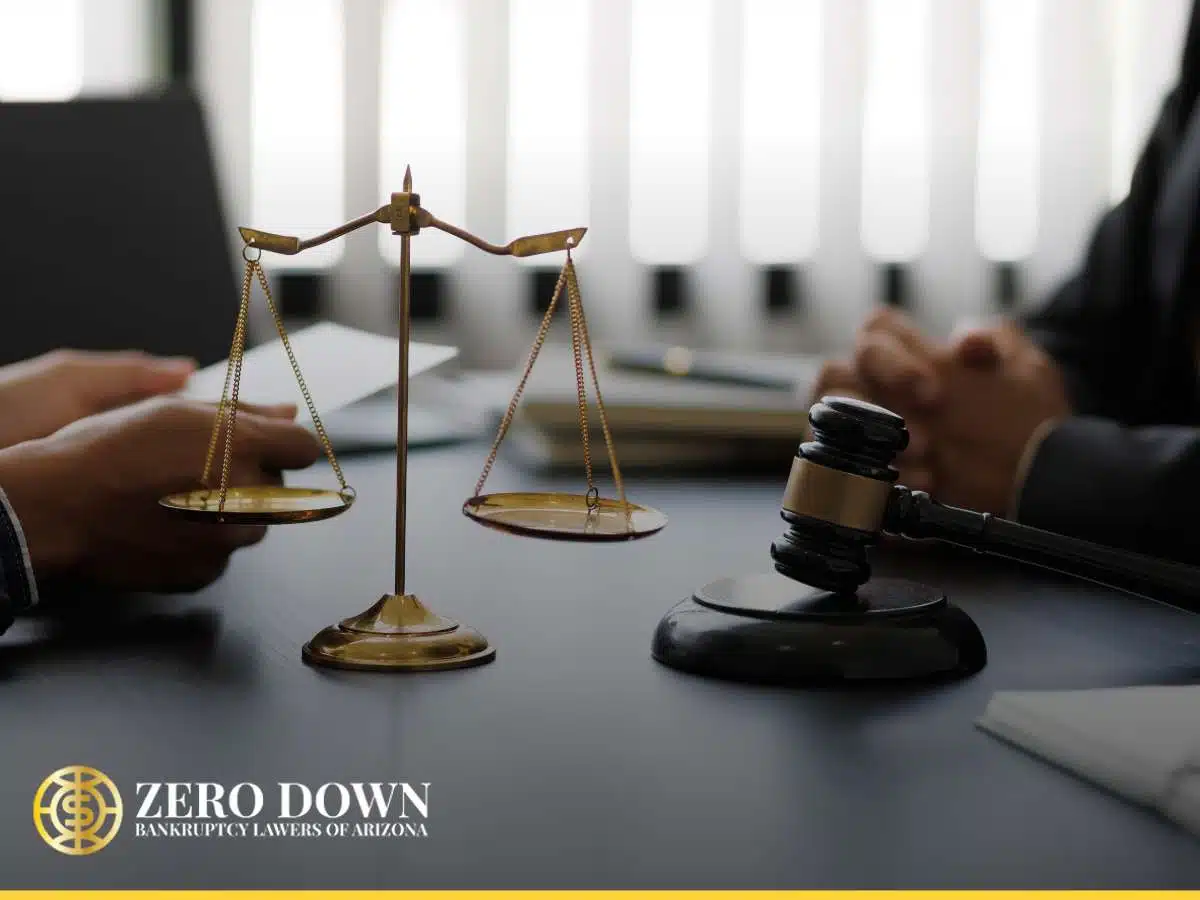What’s the worst that can happen if you fail to pay your debts? First, you may receive a summons letting you know that you are being sued for your unpaid debts and when to appear in court. Many people simply ignore this summons because they don’t have the funds to pay the amount owed. If the person doesn’t appear in court, the creditor will receive a money judgment against the debtor. What the creditor does next can depend on a variety of factors. A common next step for creditors after obtaining money judgments is to turn these into writs of garnishment. This often comes in the form of a wage garnishment in which the creditor automatically receives a portion of the debtor’s paychecks until the debt is repaid. However, a creditor can also use a money judgment to garnish non-earnings. If you’ve been ignoring debt collectors and other indicators that your debt is out of control, it may be time to consider declaring bankruptcy. To schedule your free consultation with Candace Kallen, Arizona bankruptcy lawyer, or another member of our $0 Down Phoenix BK Lawyers, click here or call 602-609-7000.

What is a Non-Earnings Garnishment?
As the name suggests, a non-earnings garnishment is a garnishment, or court-enforced automatic payment, of funds or assets besides wages, salary, bonuses, commission, etc. A non-earnings garnishment applies to personal property belonging to the judgment debtor but held by a third party. It can also include money that doesn’t qualify as “earnings.” This can play out in several ways, but there are a few scenarios that come up the most frequently. It’s also important to note that, like wage garnishments, non-earnings garnishments are subject to interest and legal fees. This can significantly increase your debt balance.
One classic example of a non-earnings garnishment is a bank account levy. A bank account levy is often used when the creditor in question is the debtor’s bank or financial institution. For example, let’s say you have a checking account with Chase Bank, as well as a credit card. You probably only opened the credit card to accumulate points and earn your credit history, but maybe you experience a medical emergency or a job loss, and you start relying more on your credit card. Eventually, you can only make the minimum payments, and interest has raised your balance beyond what you originally spent. If you stop making your credit card payments, Chase may use a non-earnings garnishment and recoup your credit card balance from your checking account. For this type of creditor, a non-earnings garnishment can be much faster and more convenient than a wage garnishment.
Non-earnings garnishments are also sometimes called “intercepted payments.” For example, a parent who falls behind on child support will likely face some form of enforcement by the court. If a parent falls behind on child support and is owed a tax refund, it may be intercepted through a non-earnings garnishment to pay some or all of their balance in arrears. A non-earnings garnishment can also be used to intercept the lottery winnings of someone who owes a debt. There are plenty of other ways a creditor can utilize a non-earnings garnishment to collect payment from a debtor. For any questions or concerns you may have about a non-earnings garnishment in the Phoenix area, click here or call 602-609-7000 to schedule your free appointment with a Phoenix Bankruptcy Lawyer.
What is the Process for a Non-Earnings Garnishment in Phoenix, Arizona?
- The creditor obtains a money judgment against the debtor.
- The creditor applies to the court for a writ of garnishment. The creditor needs to serve the debtor with the writ of garnishment and summons, instructions, an answer, a notice, a request for a hearing, and a copy of the money judgment.
- The debtor has 10 days to file a Garnishee’s Answer with the court.
- Both parties should attend the hearing on the garnishment of non-earnings. If the garnishee fails to answer or appear, the creditor should file an order to show cause with the court. The court will issue the creditor a writ of garnishment.
- Garnishment.
Can a Bankruptcy Filing Stop a Non-Earnings Garnishment?
The good news is that the automatic stay from bankruptcy protects not just against wage garnishments, but non-earnings garnishments as well. This is because when a debtor files bankruptcy, they become covered by the automatic stay. The automatic stay protects the debtor from a litany of creditor collection methods. Garnishments, repossessions, and more, all must cease once a debtor is protected by the automatic stay. A wage garnishment in place must stop when the automatic stay becomes active, and any pending garnishments will not be able to proceed. This protection lasts until the bankruptcy is either discharged or dismissed. If the debt behind the garnishment was discharged in bankruptcy, there will be no garnishment to resume after the case is completed. If you need assistance determining if bankruptcy can stop any form of garnishment you’re facing, contact our Valley of the Sun bankruptcy lawyers by calling 602-609-7000 or clicking here.
Garnishment Limits in Phoenix, Arizona
A garnishment will certainly feel like it is eating you out of home, although there are some limitations in place as to how much a creditor can take. There also has been a law enacted recently, Prop 209, which limits garnishments by creditors even further. With Prop 209 passed, a wage garnishment can’t exceed 10% of the debtor’s wages or 60 times the highest applicable federal, state, or local minimum wage. If the wage garnishment causes the debtor extreme financial hardship, it can now be lowered to 5%. Prop 209 also placed limits on assets for non-earning garnishments. Up to $400,000, equity in a home is now protected from creditors. Previously, only $150,000 equity in a home was protected in Arizona. The debtor can also protect up to $15,000 in equity of household goods, furniture, appliances, etc., and one motor vehicle. The exemption for a bank account also increased from $300 to $5,000. For more information about the limits on wage garnishments and non-earnings garnishments, contact our Bankruptcy Lawyers in Phoenix here or call 602-609-7000.
BK Lawyers in Phoenix, Arizona for Garnishments and More
A Maricopa County Bankruptcy is most effective against debt and its consequences like lawsuits, garnishments, and more when it is filed correctly. You should seek out the counsel of experienced bankruptcy lawyers before starting your bankruptcy case. A Fresh Start Bankruptcy Phoenix Attorney can give you just that- a fresh start. Emergencies and unexpected life events can happen to anyone and create a financial situation that is impossible to resolve without at least a little bit of help. Filing bankruptcy in Phoenix, AZ can be complex and confusing, adding to an already stressful situation. At Arizona Zero Down Bankruptcy Our Payment Plan Bankruptcy Attorneys offer unique payment options that can work with even the tightest budgets. This can make filing bankruptcy more affordable, especially if filing will free up more of your income by stopping garnishments. When you’re ready to get started with your free consultation with Phoenix bankruptcy attorney, Candace Kallen, or any of our other Phoenix Bankruptcy Attorneys, contact us through our online form or call 602-609-7000 for your free phone consultation.
Arizona Offices
Phoenix Location:
343 W Roosevelt Street, Suite #100
Phoenix, AZ 85003
Email: [email protected]
Phone: 602-609-7000
Mesa Location:
1731 West Baseline Rd., Suite 101
Mesa, AZ 85202
Email: [email protected]
Glendale Location:
20325 N 51st Avenue, Suite #134
Glendale, AZ 85308
Email: [email protected]
Tucson Location:
2 East Congress, Suite #900
Tucson, AZ 85701
Email: [email protected]









